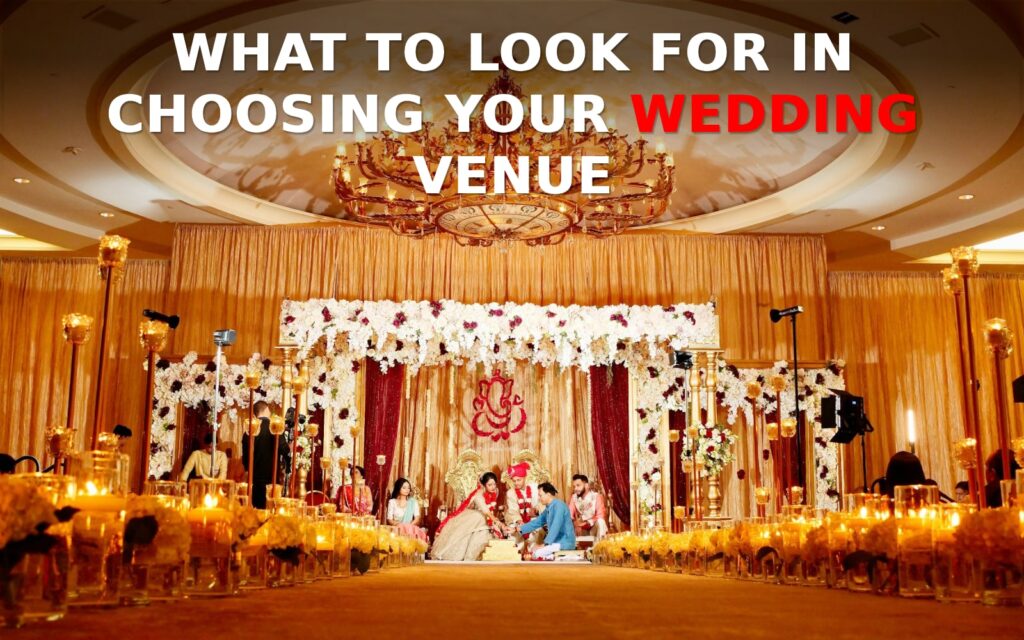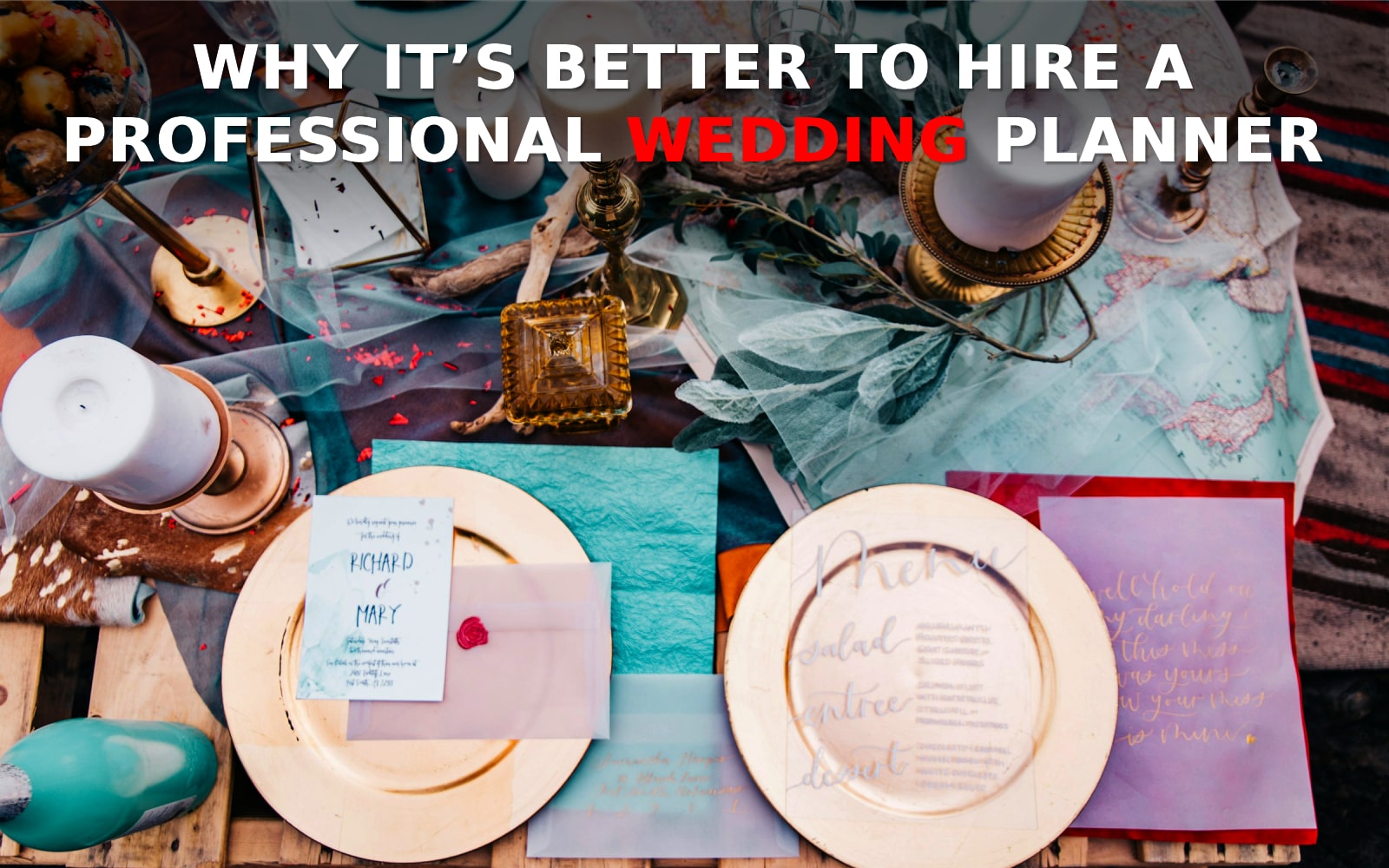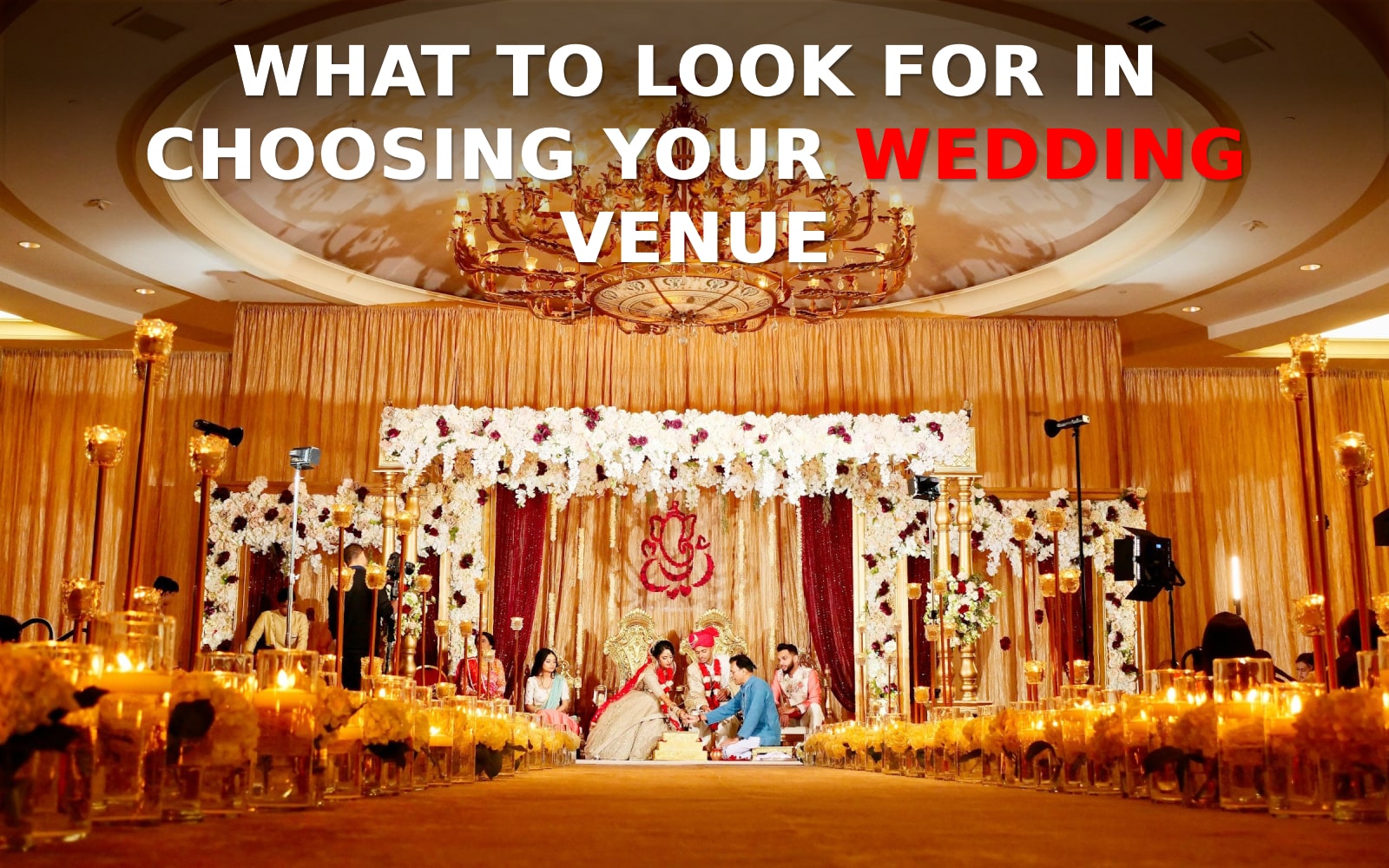Why it’s better to hire a professional wedding planner
While planning a wedding can be an exciting and rewarding experience, enlisting the help of a professional wedding planner offers numerous benefits that can make the process smoother, more efficient, and less stressful. Here are several reasons why hiring a professional wedding planner is often preferable to doing it yourself:

Expertise and Experience:
Professional wedding planners bring a wealth of knowledge, expertise, and experience to the table. They are familiar with the ins and outs of wedding planning, from budget management and vendor selection to timeline coordination and logistical details. Their expertise can help you navigate potential challenges and ensure that every aspect of your wedding is executed flawlessly.
Time Management:
Planning a wedding requires a significant investment of time and effort. A professional wedding planner can save you countless hours by handling the myriad tasks involved in the planning process. From researching vendors and negotiating contracts to managing timelines and coordinating logistics, they can take care of the details, allowing you to focus on enjoying the experience.
Vendor Relationships:
Professional wedding planners have established relationships with a network of reputable vendors, including venues, caterers, florists, photographers, and more. They can leverage these connections to help you secure the best deals, access exclusive services, and ensure that you receive top-notch quality and service on your wedding day.
Budget Management:
Wedding planners are skilled at creating and managing budgets to help you allocate your resources wisely and avoid overspending. They can provide valuable guidance on cost-saving strategies, prioritize your spending based on your priorities and vision, and help you stay on track financially throughout the planning process.
Stress Reduction:
Planning a wedding can be overwhelming and stressful, particularly as the big day approaches. A professional wedding planner acts as a trusted advisor and advocate, alleviating stress by handling logistics, troubleshooting issues, and providing reassurance and support every step of the way. Their calm demeanor and problem-solving skills can help you navigate any challenges that arise with ease.
Attention to Detail:
Weddings involve numerous details, both big and small, that must come together seamlessly to create a cohesive and memorable event. Professional wedding planners have a keen eye for detail and are meticulous in their planning and execution, ensuring that every aspect of your wedding reflects your vision and exceeds your expectations.
Creative Vision:
Wedding planners are creative professionals who excel at bringing their clients’ visions to life. Whether you have a specific theme, style, or aesthetic in mind or you’re seeking inspiration and guidance, they can help you conceptualize and execute a wedding that reflects your unique personality and love story.
Overall, hiring a professional wedding planner can streamline the planning process, alleviate stress, and ensure that your wedding day is everything you’ve dreamed of and more. Their expertise, experience, and dedication to excellence make them invaluable partners in creating the wedding of your dreams.
A To-do list to arrange a marriage
Planning a marriage involves many tasks, from setting a date to booking vendors and coordinating logistics. Here’s a comprehensive to-do list to help you arrange a marriage:

Set a Date:
Determine the date and time for the marriage ceremony and reception, taking into account factors such as availability of venues, seasonality, and personal preferences.
Create a Budget:
Establish a realistic budget for the marriage and allocate funds to different aspects such as venue, catering, attire, decorations, entertainment, and other expenses.
Compile a Guest List:
Create a list of guests you wish to invite to the marriage ceremony and reception. Consider factors such as venue capacity, budget constraints, and personal relationships when finalizing the guest list.
Book Venues:
Secure venues for the marriage ceremony and reception. Visit potential venues, negotiate contracts, and finalize arrangements for dates, times, and logistics.
Hire Vendors:
Research and book vendors for services such as catering, photography, videography, floral arrangements, music or entertainment, and transportation.
Select Attire:
Choose attire for the bride, groom, bridal party, and other participants in the marriage ceremony. Schedule fittings and alterations as needed to ensure a perfect fit.
Design Décor:
Plan and design the décor for the marriage ceremony and reception. Select themes, colors, and decorations that reflect your style and preferences.
Organize Invitations:
Create and send out invitations to guests, including details such as date, time, venue, dress code, RSVP instructions, and any other relevant information.
Arrange Officiant and Marriage License:
Secure an officiant to conduct the marriage ceremony and obtain a marriage license from the appropriate authorities.
Plan Catering and Menu:
Coordinate with the caterer to plan the menu for the marriage reception. Consider dietary restrictions, preferences, and budget when selecting food and beverage options.
Coordinate Entertainment:
Arrange for entertainment or music for the marriage ceremony and reception, such as live bands, DJs, or other performers.
Schedule Rehearsal:
Plan a rehearsal for the marriage ceremony to ensure that everyone understands their roles and responsibilities.
Organize Transportation:
Arrange transportation for the bridal party and guests to and from the marriage ceremony and reception venues.
Finalize Details:
Confirm all arrangements with vendors, venues, and participants in the marriage ceremony. Create a detailed timeline and schedule for the day of the marriage to ensure the smooth execution of events.
Enjoy Your Special Day:
On the day of the marriage, relax, enjoy the moment, and celebrate with your loved ones. Trust that all your planning and preparation will culminate in a beautiful and memorable celebration of love and commitment.
By following this comprehensive to-do list, you can effectively arrange a marriage and create a memorable and meaningful event that celebrates your love and commitment to each other.
What to look for in choosing your wedding venue
Choosing the right wedding venue is one of the most important decisions you’ll make during the planning process. Here are several factors to consider when selecting your wedding venue:

Location:
Consider the location of the venue in relation to your ceremony site, reception site, and guest accommodations. Choose a convenient location that is easily accessible for you and your guests, with ample parking or nearby transportation options.
Capacity:
Determine the size and capacity of the venue to ensure it can accommodate your guest list comfortably. Consider factors such as seating arrangements, dance floor space, and room layout when assessing capacity.
Aesthetic Appeal:
Assess the aesthetic appeal of the venue, including its architectural style, interior design, and overall ambiance. Choose a venue that aligns with your wedding theme, style, and personal preferences.
Outdoor Spaces:
If you’re considering an outdoor wedding, evaluate the outdoor spaces available at the venue, such as gardens, courtyards, or waterfront areas. Consider factors such as weather contingency plans, accessibility, and amenities for outdoor events.
Indoor Spaces:
If you prefer an indoor wedding, evaluate the indoor spaces available at the venue, such as banquet halls, ballrooms, or historic buildings. Consider factors such as layout options, lighting, and acoustics when assessing indoor spaces.
Services and Amenities:
Inquire about the services and amenities offered by the venue, such as catering, bar service, event coordination, and rentals. Choose a venue that offers the amenities and services you need to create a seamless and stress-free wedding experience.
Flexibility and Customization:
Look for a venue that offers flexibility and customization options to personalize your wedding. Consider whether the venue allows outside vendors, provides options for décor and layout, and accommodates special requests or cultural traditions.
Accessibility:
Ensure that the venue is accessible to all guests, including those with mobility challenges or special needs. Evaluate factors such as wheelchair access, parking accommodations, and restroom facilities to ensure inclusivity for all attendees.
Budget:
Consider the cost of the venue in relation to your overall wedding budget. Inquire about pricing packages, payment schedules, and any additional fees or charges to ensure that the venue aligns with your financial constraints.
Reviews and Recommendations:
Research reviews and testimonials from past couples who have held weddings at the venue. Seek recommendations from friends, family members, or wedding professionals to gather insights and feedback about the venue’s quality and service.
By carefully considering these factors and conducting thorough research and site visits, you can choose a wedding venue that meets your needs, reflects your vision, and sets the stage for a memorable and magical wedding day.



